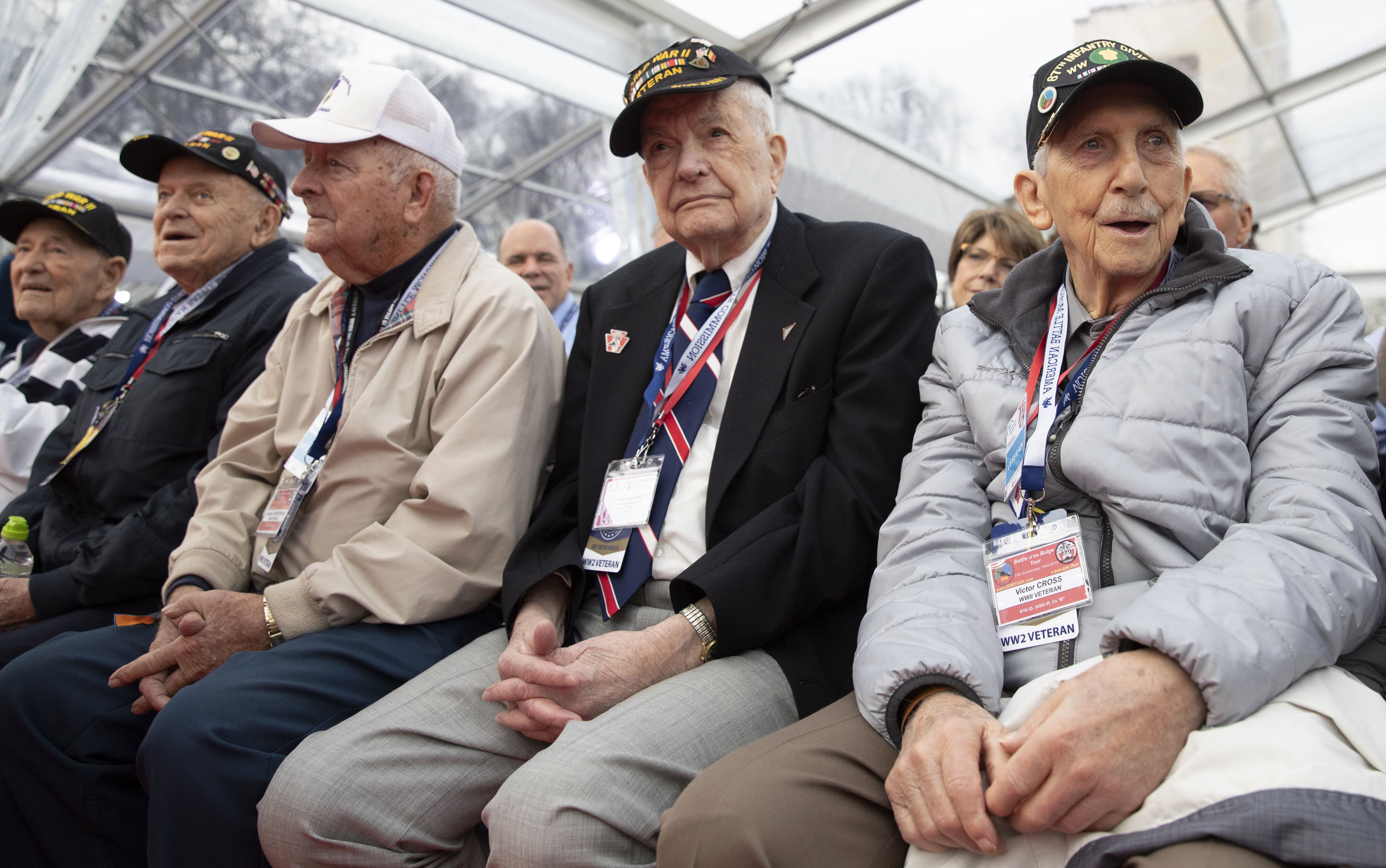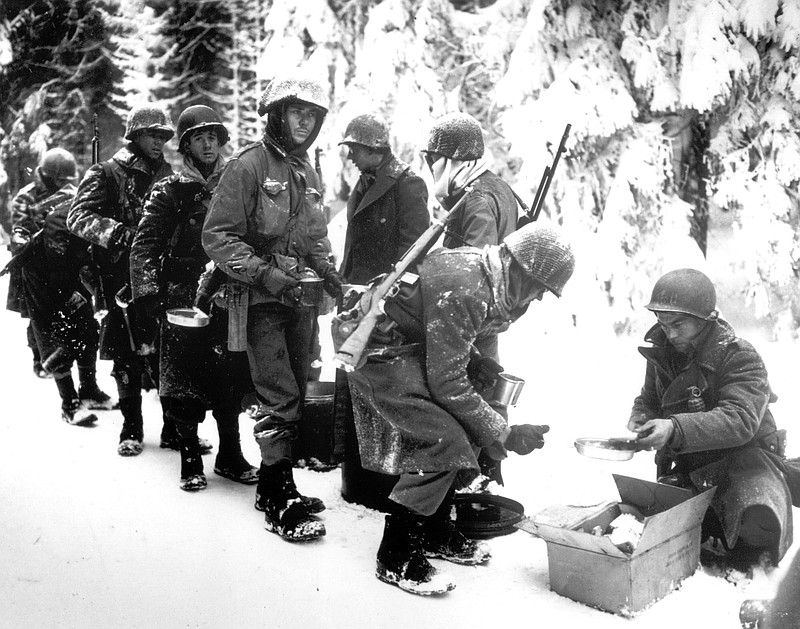Before daybreak, Saturday, Dec. 16, 1944, German forces launched a massive, surprise offensive against U.S. Army units in Southeastern Belgium. The ensuing five weeks of combat would be known thereafter as the Battle of the Bulge.
The attack struck through the rugged terrain of the Ardennes Forest, an area considered virtually impassable by U.S. intelligence for a German offensive. German forces aimed to split U.S. and British armies, crushing the latter, before capturing the vital transport and communication center of Antwerp. The German high command believed that a crushing defeat of Allied forces would lead to a negotiated settlement of the war on the Western European front.
Allied defenders faced 200,000 fresh attackers with superior armor and artillery. Attacks by fighter aircraft, V-1 cruise missiles and paratroopers would be employed in the course of the offensive.
To undermine Allied morale, attackers were urged to show no mercy to captives. On Dec. 17, at a crossroads near Malmedy, Belgium, members of a German armored unit massacred 84 U.S. prisoners of war. A survivor, who feigned death, later escaped and alerted Allies to this atrocity. Perpetrators would be convicted of war crimes in post-war trials.
 Battle of the Bulge veterans from left, Jack Stitzinger, Joe Landry, Clayton Christensen, Robert Thompson and Victor Cross attend a ceremony to commemorate the 75th anniversary of the Battle of the Bulge at the Luxembourg American Cemetery in Hamm, Luxembourg on Monday, Dec. 16, 2019. (AP Photo/Virginia Mayo)
Battle of the Bulge veterans from left, Jack Stitzinger, Joe Landry, Clayton Christensen, Robert Thompson and Victor Cross attend a ceremony to commemorate the 75th anniversary of the Battle of the Bulge at the Luxembourg American Cemetery in Hamm, Luxembourg on Monday, Dec. 16, 2019. (AP Photo/Virginia Mayo)Allied reinforcements, already exhausted from nonstop fighting since the D-Day invasion, were rushed to the collapsing front line. Fierce fighting occurred at multiple sites. The enemy offense coincided with one of the worst winters in recent decades.
The Belgium town of Bastogne sat at the confluence of seven roads, making it a prime target for the attackers. To shore up defenses, the U.S. 101st Airborne Division was rushed to the town to join remnants of other units in holding the vital site. The all-African American 969th Artillery Battalion joined in the defense of Bastogne. German forces outnumbered defenders five-to-one. Thousands of refugees had fled into the town, placing an enormous strain on U.S. resources. The ensuing battle and siege lasted from Dec. 20 - Dec. 27. The town was reduced to rubble. Most of the U.S. medical personnel and supplies had been captured at the outset of the siege. Short of food, medications, winter attire and ammunition, the defenders held out.
On Dec. 22, the commander of German forces sent an emissary into the town under a white flag. His note demanded the immediate surrender of U.S. troops. Brigadier Gen. Anthony McAuliffe, the senior U.S. officer at Bastogne, famously replied, "Nuts," and fighting resumed.
On Dec. 26, elements of Gen. George Patton's 3rd Army, which had been diverted to the besieged town, broke through the encircling German force and the siege of Bastogne was over.
While intense fighting continued, major disagreements broke out among U.S., British and French leadership over conduct of the defense and plans for a counter-offensive. Gen. Dwight Eisenhower, Supreme Commander of Allied Forces, later described resolution of this dispute as the greatest challenge that he faced.
As weather improved, U.S. aircraft repeatedly attacked enemy tanks and supply lines. Reinforcements formed a force of 600,000 for defense and counterattack. German forces suffered worsening shortages of fuel and ammunition. By late January, German forces had been pushed back to the border of their homeland. The last German offensive in Western Europe was over.
By the time the battle concluded in late January, U.S. forces had suffered more than 100,000 casualties: almost 20,000 killed, 23,000 captured, and 42,000 wounded, many of whom suffered severe frostbite. Numerous acts of heroism by individuals and units were documented. Twenty soldiers received the Congressional Medal of Honor.
In an address to Parliament on Jan. 18, 1945, Prime Minister Winston Churchill highlighted American casualties and response in the ongoing battle. "'The Bulge' is undoubtedly the greatest American battle of the war and will, I believe, be regarded as an ever-famous American victory."
Let us pause and reflect on courage, sacrifice and devotion by the men and women who defended us in World War II.
Contact Clif Cleaveland at ccleaveland@timesfreepress.com.

